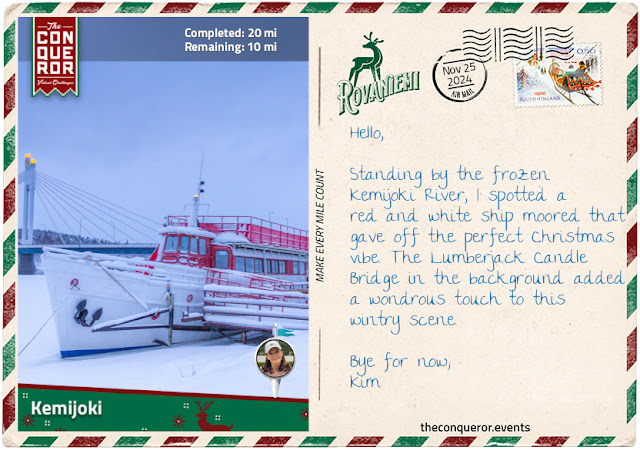Finishing my peaceful sleigh ride, I headed back into the city, navigating through suburban streets past quaint wooden cottages, eventually reaching downtown Rovaniemi.
As I arrived, I was
greeted by a mix of modern and traditional architecture. The work of architect
Alvar Aalto is particularly notable here, including the Rovaniemi City Hall,
which was completed posthumously by his wife, as well as the city library, and
Lappia House, the city's conference centre. These buildings feature a
minimalistic style with organic yet angular shapes, such as those of Lappia
House, using materials that resonate with the natural environment and
complement the region's rugged landscape.
Another interesting spot
is Lordi Square, named after the Eurovision-winning metal band. Lordi, hailing
from Rovaniemi, made history in 2006 by winning the Eurovision Song Contest
with their song "Hard Rock Hallelujah". Formed in 1992, Lordi is
known for their hard rock and heavy metal music, complete with pyrotechnics and
horror elements. What really sets them apart is their incredible stage look,
featuring monster costumes, elaborate makeup, and towering platform shoes.
Naming the square after them is a nod to their big win, local pride, and their
impact on Finnish culture.
Leaving Lordi Square, I crossed the Ounaskoski Bridge over the Kemijoki. This two-storey bridge was originally built in 1934 but destroyed during WW2. The new bridge, opened in 1951, supports railway traffic on the top section, while the lower one is for cars and pedestrians.
Looking north from the
bridge, I could see the Lumberjack Candle Bridge. This cable-stayed landmark
opened in 1989 and won a Civil Engineering Prize for its innovative design.
Inspired by the Finnish 'lumberjack candle'—a traditional outdoor fire made by
sawing dry pine logs into four parts and lighting them—the bridge features red
lights atop its pillars that resemble burning candles.
As I admired the bridge,
my gaze naturally turned towards the Kemijoki or Kemi River. As Finland's
longest river, the Kemijoki flows south for 340mi (550km), emptying in the Gulf
of Bothnia. The river has been impacted by hydroelectric dams, starting with
the Isohaara power plant built in 1949 and followed by 20 others, depleting the
once-abundant salmon stocks. Despite efforts to release young salmon into the
river, the numbers have not yet recovered. However, projects like the fishway
at Isohaara give hope that salmon migration could improve.
After a day exploring in the cold, I decided to warm up with a bowl of lohikeitto, a creamy salmon soup that was both comforting and delicious. To finish the meal, I treated myself to a slice of raparperipiirakka, a delightful rhubarb pie that added a sweet note to the end of a satisfying day.










No comments:
Post a Comment
It's so good to see you here . . .